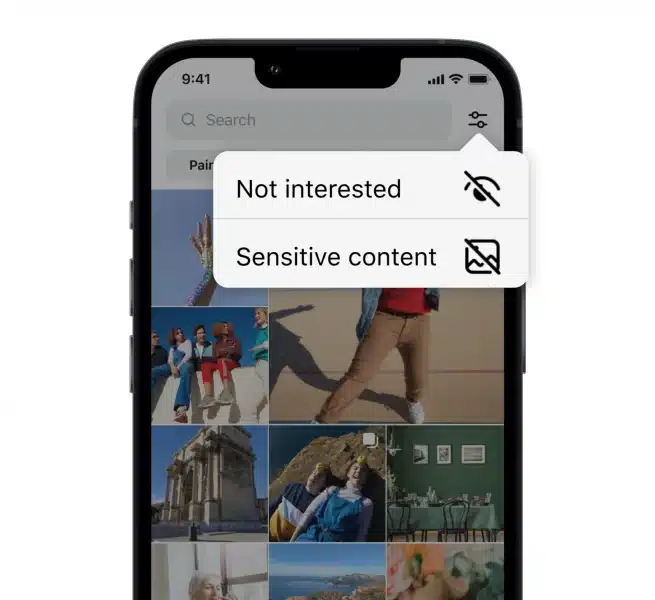Instagram announced two new features to help users control what they see in their feeds.
Mark as Not Interested. The first feature is the ability to mark multiple posts in the Explore section as Not Interested. Those posts will be hidden and users won’t see similar posts in the future.


Keywords, phrases, and emojis. The second new feature is the ability for users to tell Instagram you don’t want to see suggested posts with certain words, phrases, or emojis in the captions.

See more of what you want. To see more posts you’re interested in, Instagram suggests some best practices.
- Favorites allow users to see posts from their favorite accounts higher and more often.
- Followers will allow you to only see posts from accounts you follow. Users can view content up to the last 30 days.
- The Not interested feature can be used to remove posts from your feed immediately. This feature can also be accessed using the three dots at the top right of the post.
- Snooze Suggested Posts can be used to snooze all suggested posts from your feed for 30 days.
- Adjusting sensitive content. Adjusting sensitive content allows users to see more or less certain types of content that Instagram considered sensitive, based on their Community Guidelines.
Why we care. Social media users don’t like being inundated with too many advertisements or promotions, especially if that content isn’t helpful or relevant. These new features give Instagram users more power to dismiss or hide content they find irrelevant, overly promotional, or spam.
Advertisers and brands that use Instagram to promote their content may want to reconsider the types of posts they publish. If the content is relevant, followers will be more likely to engage. Brands should look at their Instagram stats and evaluate whether the content they’re posting is well received among their audience.
The post Instagram is testing 2 new ways to control your feed appeared first on Search Engine Land.
a message brought to you by Wayne Vass SEO
This article first appeared on: The post %%POSTLINK%% appeared first on %%BLOGLINK%%.
 RSS Feed
RSS Feed
